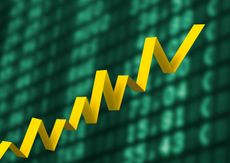What Is an Index Fund and Should I Invest in One?
Index funds provide investors with exposure to wide swaths of the market at low costs, but are they right for you? We take a closer look here.


If you're new to investing or just want to keep it as simple and inexpensive as possible, index funds are your best friend. But beginning investors may be wondering "what are index funds?" and more importantly, if they should invest in one.
At the very basic level, index funds are diversified, low-cost investment vehicles that let you invest in dozens, hundreds or even thousands of different stocks with a single purchase.
It may sound too good to be true, but that's only until you understand what an index fund is and what it can do for you and your portfolio.

Sign up for Kiplinger’s Free E-Newsletters
Profit and prosper with the best of expert advice on investing, taxes, retirement, personal finance and more - straight to your e-mail.
Profit and prosper with the best of expert advice - straight to your e-mail.
What is an index fund?
An index fund is a mutual fund or exchange-traded fund (ETF) that tracks a market index. But what is a market index?
"A market index is simply a way to track the performance of a segment of the financial markets," says Ashley Weeks, wealth strategist at TD Wealth.
To help visualize this, he suggests thinking of the entire financial markets as a baseball team with each player representing a different piece or sector of the market.
"A batting average for each player is analogous to a market index for each sector," Weeks says. "It is a constantly updating metric that is used to track performance."
Market indexes can be broad, like the FT Wilshire 5000 Index that is designed to track the entire U.S. equity market. They can also be narrow-based, like the S&P Biotechnology Select Industry Index, which represents the biotechnology industry.
Perhaps the most frequently cited index is the S&P 500, which is an index that holds 503 of the largest U.S. stocks. "There are numerous index funds that seek to mimic the S&P 500 market index, and an investor can gain exposure to the entire index by simply buying into one of those funds," Weeks says.
Why should I invest in an index fund?
When you go shopping, would you rather pay in pennies or dollars? Obviously, it's much easier to hand over a single dollar bill than it is to count out 100 pennies. A similar concept can be applied to an index fund.
If you want to invest in the S&P 500, you could go out and buy shares in each of the 500 companies within the index, or you could find an S&P 500 index fund and buy a single share of that.
The index advantage can be seen even more clearly in foreign markets. You don't need to invest locally in Latin America or Japan because there's likely an index fund that already exists in the NYSE or another major market that you can purchase instead, says Manuel Alvarez, a senior wealth advisor at Citi International Personal Bank U.S.
An index fund works by proportions: Each share you buy represents a proportional ownership of the entire fund. If the fund is 10% Apple (AAPL) stock and 5% Microsoft (MSFT) stock, your share of the fund will also be 10% Apple and 5% Microsoft. This is why you may hear index funds referred to as "instant diversification" – every penny you invest in the fund is equally diversified.
"Index funds are also generally very liquid and trade in many of the stock exchanges across the globe, making them easy to buy and sell," Alvarez says.
How can I pick the best index fund for me?
If you're able to answer the question "what is an index fund" and are sold on their power, the next question is how to choose the right index fund for you. It starts, as with all things investing, with a plan.
"The first step is to create a financial plan and determine what the time horizon and objectives are for any money deployed into the markets," Weeks says. This will help you determine what index or indexes you want to invest in.
For example, if you know you want a U.S. stock index and don't want too much risk, you might consider a broader index like the FT Wilshire 5000 or one that invests in more stable companies, like the S&P 500. The shorter your time horizon, the more conservative your investments should be.
You should also consider what issues that matter to you to ensure your investments align with your values, Alvarez says. This means you'll need to understand the index in question: What market segment does it aim to represent? What types of companies does it invest in to achieve this objective?
Once you've chosen an index to track, look for a fund with a low expense ratio that tracks that index. "Index funds do not utilize active fund managers to make tactical trades so there is no reason to pay a high fee for simply riding the index," Weeks says. A good target is to keep expense ratios under 0.2%, but often the lower the better.
Next, look at how well the fund tracks its benchmark index. "High-quality index funds will provide easily accessible information about past performance including a comparison of how closely the fund has mimicked the market index benchmark," Weeks says.
You'll also want to pay attention to the fund's size. Smaller funds or ones with lower average trading volume are more prone to illiquidity issues.
To summarize: Look for low expense ratios but high assets under management (AUM) and trading volume when choosing an index fund.
Related content
- Best Online Brokers and Trading Platforms
- The Best Actively Managed Fidelity Funds to Buy Now
- Investing Mistakes Beginners Make and How To Avoid Them

To continue reading this article
please register for free
This is different from signing in to your print subscription
Why am I seeing this? Find out more here
Get Kiplinger Today newsletter — free
Profit and prosper with the best of Kiplinger's advice on investing, taxes, retirement, personal finance and much more. Delivered daily. Enter your email in the box and click Sign Me Up.

Coryanne Hicks is an investing and personal finance journalist specializing in women and millennial investors. Previously, she was a fully licensed financial professional at Fidelity Investments where she helped clients make more informed financial decisions every day. She has ghostwritten financial guidebooks for industry professionals and even a personal memoir. She is passionate about improving financial literacy and believes a little education can go a long way. You can connect with her on Twitter, Instagram or her website, CoryanneHicks.com.
-
 The Evolution of Citizenship by Investment Programs
The Evolution of Citizenship by Investment ProgramsThe evolution of CBI programs has reflected changing global trends and the diverse needs of individuals seeking secondary citizenship.
By Jean-Francois Harvey Published
-
 5 Stocks With Solid Growth History and a Promising Outlook
5 Stocks With Solid Growth History and a Promising OutlookFive reasonably priced stocks with solid growth history and a good chance of delivering earnings even if the economy softens.
By Kim Clark Published
-
 Five Stocks With Solid Growth History and a Promising Outlook
Five Stocks With Solid Growth History and a Promising OutlookFive reasonably priced stocks with solid growth history and a good chance of delivering earnings even if the economy softens.
By Kim Clark Published
-
 Why You Should Invest in Commodities
Why You Should Invest in CommoditiesThese portfolio diversifiers are in a long-term uptrend and show why you should invest in commodities
By Anne Kates Smith Published
-
 Now's a Great Time to Build a Bond Ladder
Now's a Great Time to Build a Bond LadderNavigating how to proceed with new or rollover money can be daunting. Here are some of the best ways to guarantee a high yield to maturity and full recovery of principal.
By Jeffrey R. Kosnett Published
-
 What's the Most Popular Investment? These Investors Might Be Missing Out
What's the Most Popular Investment? These Investors Might Be Missing OutThe most popular investment may shock you and it has widely underperformed other asset classes. Here’s what you need to know.
By Joey Solitro Published
-
 Stock Market Today: S&P 500 and Nasdaq Hit Records as Jobs Growth Slows
Stock Market Today: S&P 500 and Nasdaq Hit Records as Jobs Growth SlowsAn uptick in the unemployment rate amid a cooling labor market could accelerate the Fed's rate-cut timeline.
By Dan Burrows Published
-
 Softer June Jobs Report Raises Rate-Cut Bets
Softer June Jobs Report Raises Rate-Cut BetsJobs Report Slower hiring and a rise in the unemployment rate up the odds of the Fed easing more than once before year-end, experts say.
By Dan Burrows Published
-
 Insurance Stocks Do Just Fine Amid Harsh Weather
Insurance Stocks Do Just Fine Amid Harsh WeatherStrange as it sounds, heat waves and car accidents might be good for your portfolio.
By James K. Glassman Published
-
The Top-Performing Actively Managed Funds of the Last Decade
These are the actively managed funds that have performed best over the last decade.
By Nellie S. Huang Published
